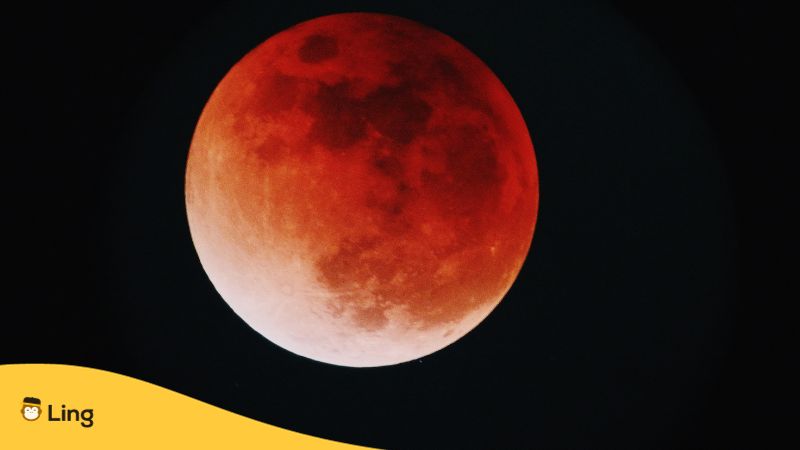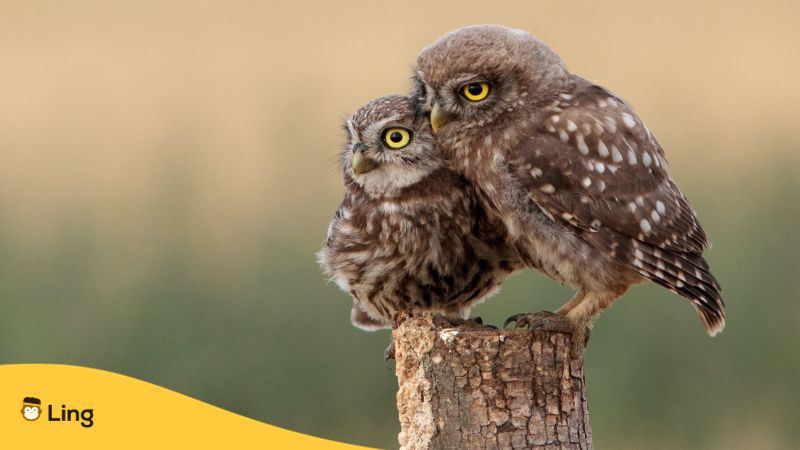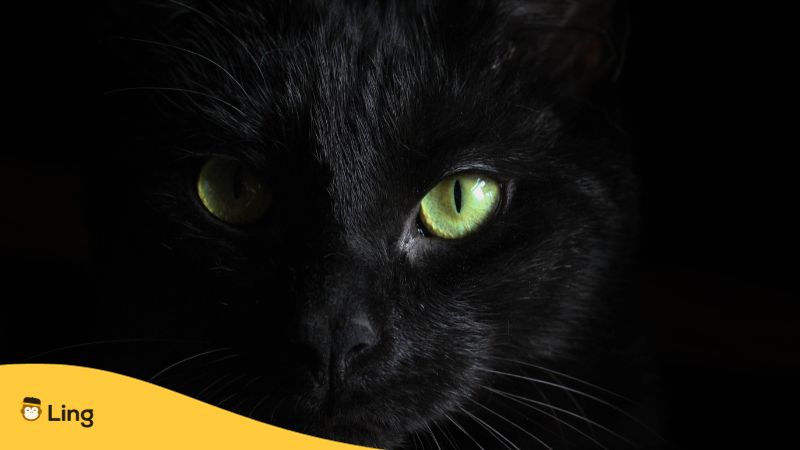Nepal, the land of majestic, steep mountains, vibrant traditions, and captivating cultures, is not only renowned for its natural beauty but also for its rich customs and beliefs. Whether it’s hanging dry lemon, cat crossing, or a dog howling, a bad omen means something in Nepali culture.
Among these customs, Nepali superstitions hold a special place, offering a unique insight into the country’s cultural life. In this blog post, we’ll explore some common Nepali superstitions, providing you with a glimpse of the Nepali language and culture, as well as helping you learn the language!
Top 10 Nepali Superstitions
Here are some of the most prevalent superstitions in the Nepalese society.
1. The Evil Eye – Narāmrō Najara (नराम्रो नजर)
In Nepal, the belief in the “evil eye” is prevalent in blind belief & bad dreams. It is said that certain individuals possess the power to unintentionally harm others with just a glance. To ward off this malevolent force of bad souls, Nepalis often use words and phrases like “Nazar nalāgos” (नजर नलागोस्) meaning “Don’t cast an evil eye” to protect themselves or their possessions.

2. Sneezing Three Times – Tinpaṭak Chiṭṭieko āśirvād (तीन पटक छिट्टो को आशीर्वाद)
Nepalis believe that sneezing three times in a row is a sign of good luck. When someone sneezes thrice, you’ll often hear people say “Tinpaṭak chiṭṭieko āśirvād” (तीन पटक छिट्टो को आशीर्वाद), which means “Blessings upon sneezing three times.”
3. Whistling At Night – Rātī Siṭṭī Bajā’unē (राती सिट्टी बजाउने)
Nepali superstitions also caution against whistling at night. It is believed that doing so invites negative spirits into your home. The phrase “Rātī siṭṭī bajā’unē” (राती सिट्टी बजाउने) warns against this practice.
4. Black Cats – Kālō Birālōharū (कालो बिरालोहरू)
In many cultures, black cats are associated with bad luck, and Nepali culture is no exception. When someone spots a black cat, you might hear them say “Kālō birālōkō pāthī bāṭōmā na’ā’u” (कालो बिरालोको पाथी बाटोमा नआउ), meaning “Don’t cross the path of a black cat.”

5. Solar And Lunar Eclipses – Sūrya Ra Candra Grahaṇa (सूर्य र चन्द्र ग्रहण)
Eclipses are viewed with great caution in Nepal. It is believed that they bring bad omens and negative energy. People often stay indoors during eclipses, and you might hear phrases like “Sūrya ra chandra grahaṇako velā tapā’ī bāhira nā’ūnuhos” (सूर्य र चन्द्र ग्रहणको वेला तपाईं बाहिर नआउनुहोस्), which means “Don’t go outside during a solar or lunar eclipse.”
6. Omens From Nature – Prākr̥tika Cinhaharū (प्राकृतिक चिन्हहरू)
Nepalis are deeply connected to nature, and they believe that certain natural occurrences can predict the future (aka happen tomorrow) with bad spirits & bad luck. For example, if a crow caws near your house, it is seen as a sign of impending guests. This belief is summed up in the phrase “Gharakā pāsinā kāgako boli” (घरका पासिना कागको बोलि), meaning “The crow’s call near the house.”
7. Friday, The 13th – Śukrabārako 13 Gate (शुक्रबारको १३ गते)
Just like in many Western cultures, Friday the 13th is considered unlucky in Nepal. People tend to avoid making important decisions or starting new endeavors on this day. The phrase “Śukrabārako 13 gate asādhya din ho” (शुक्रबारको १३ गते असाध्य दिन हो) emphasizes the perceived difficulty of this day.
8. Broken Mirrors – Bhaṅgi’ēkō Darpaṇa (भङ्गिएको दर्पण)
Breaking a mirror is considered inauspicious in Nepali culture, just like in many other cultures around the world. It is believed to bring seven years of bad luck. When a mirror shatters, you might hear the phrase “Bhaṅgieko darpaṇ asādhya samaya ho” (भङ्गिएको दर्पण असाध्य समय हो), meaning “A broken mirror denotes an unfortunate time.”

9. Hooting Of Owls – Ullukō Cicyā’udai (उल्लुको चिच्याउदै)
In Nepal, the hooting of owls is often seen as a harbinger of death or misfortune. People believe it’s an omen that signifies the arrival of bad news. When you hear an owl’s hoot, you might encounter the phrase “Ullukō cicyā’udai dukhako sūcanā ho” (उल्लुको चिच्याउदै दुखको सूचना हो), meaning “The owl’s hoot is a sign of sorrow.”
10. Sweeping The House At Night – Rātamā Ghara Jhāḍnu (रातमा घर झाड्नु)
Sweeping the house after sunset or during the night is discouraged in Nepal in blind faith, as it is believed to sweep away the household’s wealth and good fortune during the bad nights. The saying “Rātmā ghar jhāḍnu dhankō chāno gardaina” (रातमा घर झाड्नु धनको छानो गर्दैन) cautions against this practice, translating to “Sweeping the house at night time wipes away the wealth.”
Additional Bad Luck Omens In Nepalese Society
- Banging heads with another person’s head
- Odd serving of food servings (odd numbers)
- Cutting nails at night
- Hanging lemons
Wrapping It All Up
Nepali superstitions are deeply rooted in the country’s cultural heritage and continue to influence daily life. While some may view them as mere beliefs, they offer a fascinating window into the traditions and values that shape Nepali society. As you embark on your journey to learn the Nepali language, understanding these many superstitions will not only enhance your language skills but also enrich your appreciation of this beautiful culture. So, remember these phrases, and continue to explore the enchanting world of Nepal’s superstitions and language.

Learn Nepali With Ling
the Ling app is a highly researched language-learning app for a fun and personalized experience. With Ling, you’ll smash your language goals with a little hard work and practice. Aside from Nepali, there are over 60+ foreign languages to learn on Ling. Download it today!
Want to learn more Nepali but don’t know where to find resources on this niche language? Download the Ling app today from the App Store and Play Store.































































